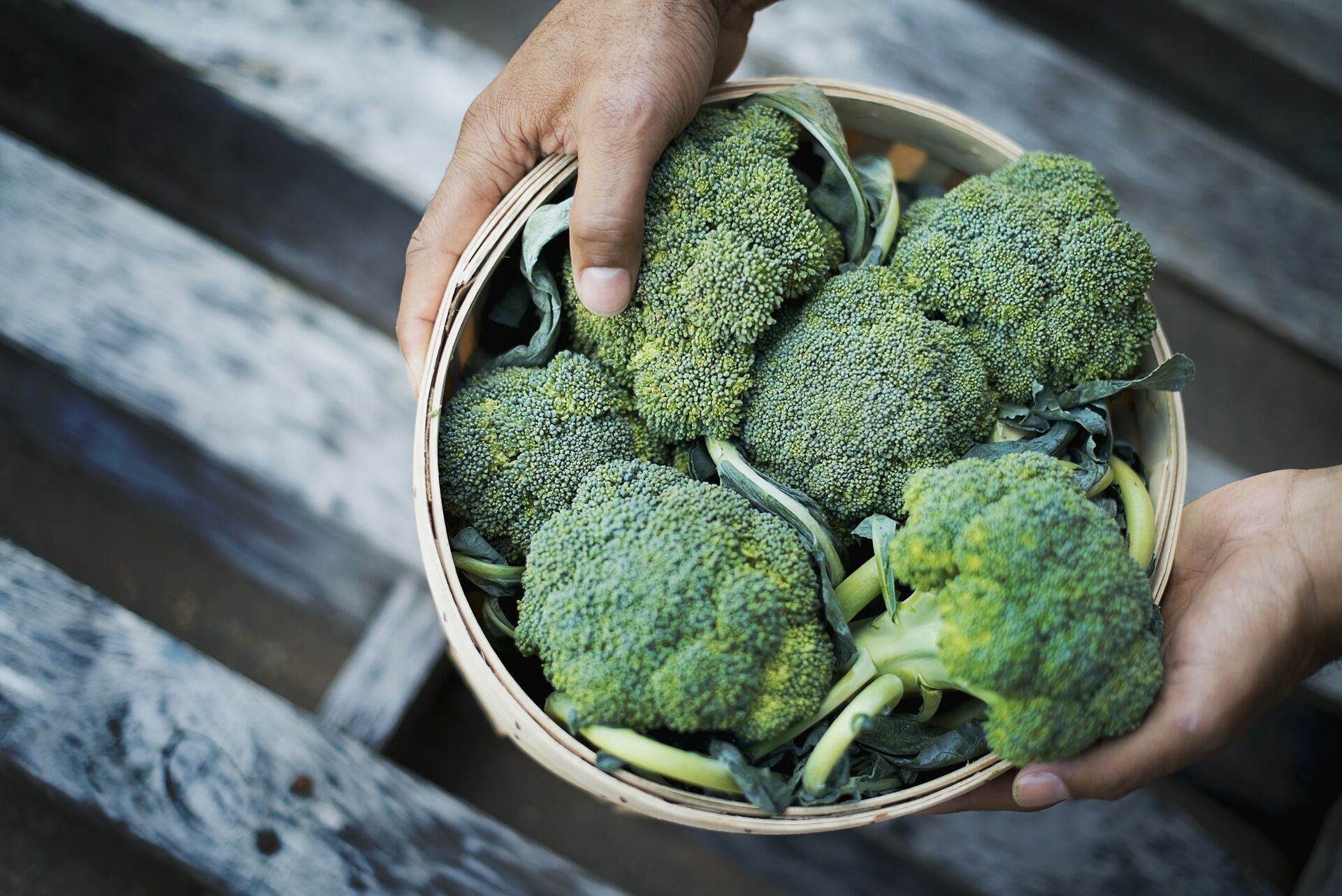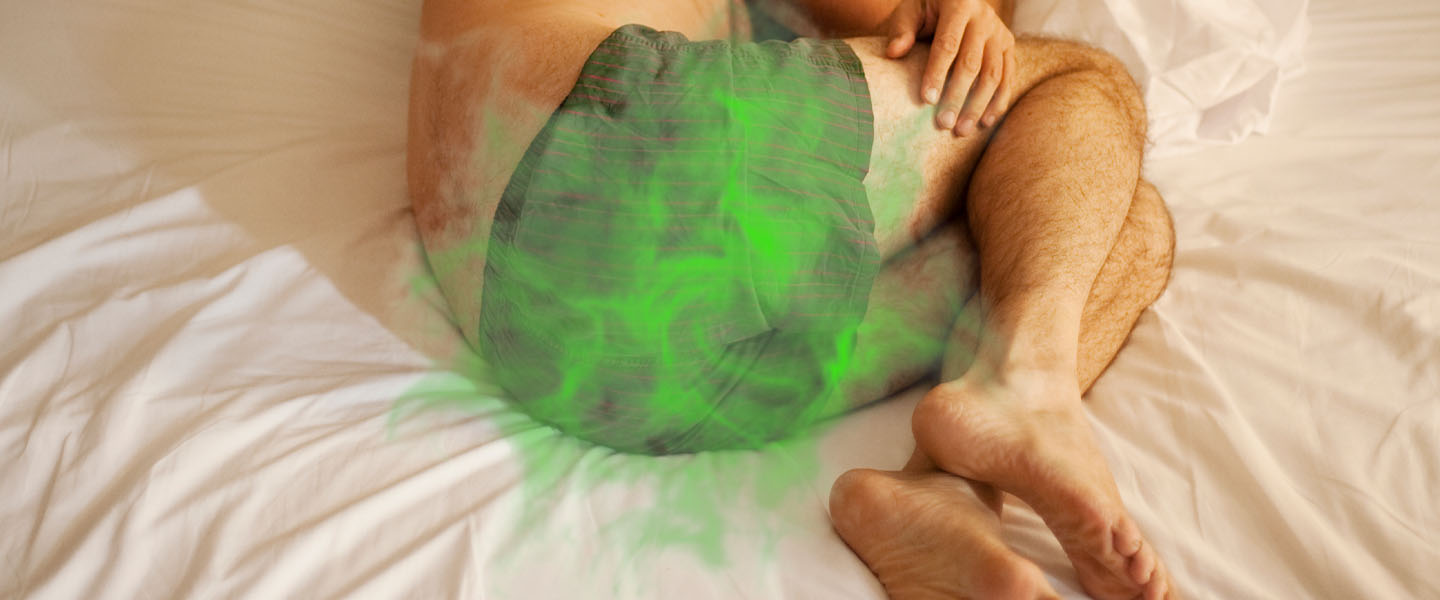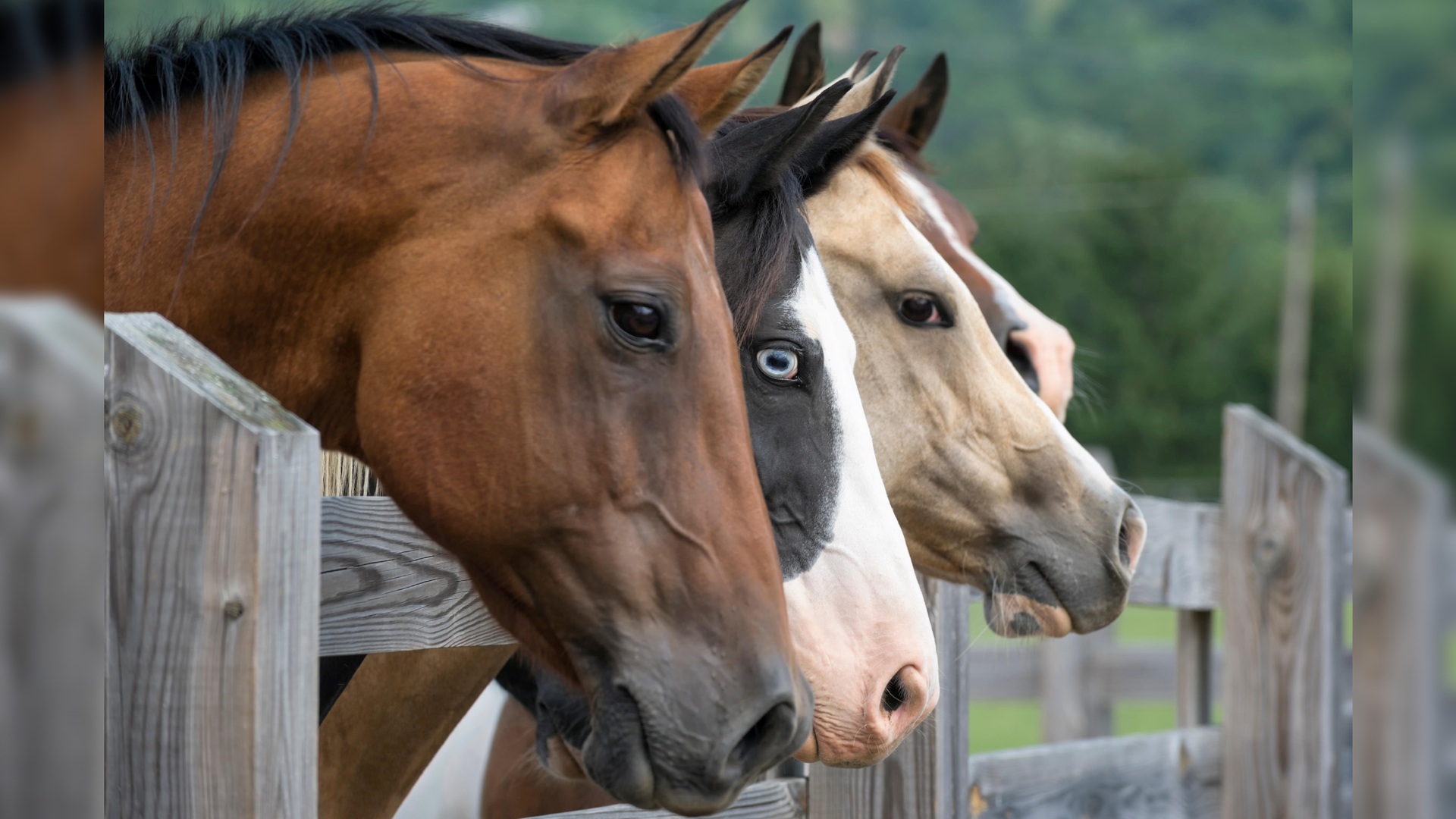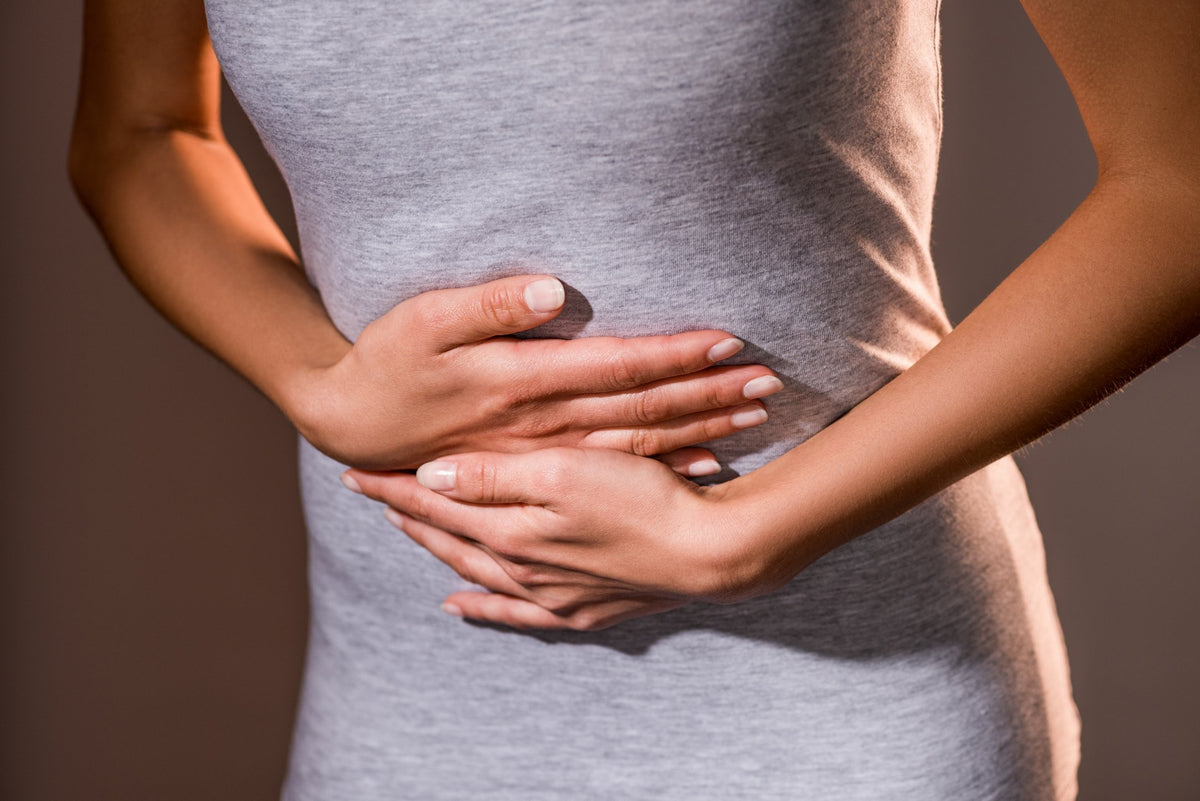

FAQs
Why Does Beer Make Me Fart So Much
Modified: August 5, 2023
Discover why beer may be causing excessive flatulence and learn the answers to general questions about this common bodily reaction.
(Many of the links in this article redirect to a specific reviewed product. Your purchase of these products through affiliate links helps to generate commission for Under-tec.com, at no extra cost. Learn more)
Table of Contents
Introduction
Have you ever wondered why enjoying a cold beer can sometimes leave you feeling gassy and bloated? We’ve all experienced it — that uncomfortable sensation of excess gas that leads to frequent and often unsightly flatulence. It can be embarrassing, inconvenient, and even a little unpleasant. But why does beer have this effect on our digestive system?
To understand why beer can make you fart, we need to dive into the intricacies of our digestive process. The human digestive system is a complex and fascinating network of organs, enzymes, and bacteria working together to break down food and extract nutrients. Digestion starts in the mouth as we chew and swallow food, then continues through the stomach and small intestine, before reaching the large intestine or colon.
Gas is a natural byproduct of digestion and is produced throughout the digestive tract. It’s a normal part of the process, and our bodies have mechanisms to deal with it. However, some foods and beverages, including beer, can exacerbate the production of gas, leading to excessive flatulence.
Beer is a fermented alcoholic beverage made from grains, water, yeast, and hops. During the brewing process, yeast consumes the sugars in the grains, producing alcohol and carbon dioxide (CO2) as byproducts. The carbonation we feel when drinking beer is a result of this CO2. However, it’s not just the carbonation that contributes to flatulence.
When we consume beer, the CO2 bubbles can have a two-fold effect on our digestive system. First, the bubbles can increase the volume of gas in our stomach and intestines, leading to feelings of bloating and discomfort. Second, as carbon dioxide is released during digestion, it can accumulate in the digestive system, making its way down and eventually being expelled as flatulence.
Additionally, beer contains fermentable carbohydrates, such as certain sugars and fibers, which can be difficult for our bodies to fully digest. These carbohydrates end up in the large intestine, where bacteria ferment them, producing more gas as a result. This can further contribute to the excessive flatulence experienced after drinking beer.
While beer is often associated with causing flatulence, it’s important to note that individual reactions may vary. Some people are more sensitive to the effects of beer on their digestive system, while others may not experience any noticeable changes. Various factors can influence the severity of beer-induced flatulence, including genetics, gut bacteria composition, and the amount and type of beer consumed.
In the following sections, we will explore the factors that contribute to beer-induced flatulence and provide some helpful tips for managing this common side effect of beer consumption. So, grab a cold one and let’s delve into the fascinating world of beer and its impact on our digestive system.
Understanding the Digestive Process
The digestive process is a complex series of events that allows our bodies to break down food and extract the necessary nutrients for energy and bodily functions. It starts as soon as we take our first bite and continues until the food is fully digested, absorbed, and eliminated.
When we consume food, it enters the mouth, where the digestive process begins. As we chew, enzymes in our saliva start breaking down carbohydrates. The food then travels down the esophagus and into the stomach.
In the stomach, food is churned and mixed with stomach acid and digestive enzymes. This acidic environment helps break down proteins while killing bacteria and other harmful organisms. Afterward, the partially digested food, known as chyme, moves into the small intestine.
The small intestine is where the majority of the digestion and absorption of nutrients take place. It is lined with small finger-like structures called villi, which increase the surface area for nutrient absorption. Enzymes from the pancreas and bile from the liver aid in breaking down fats, proteins, and carbohydrates further.
The nutrients are then absorbed through the walls of the small intestine and transported into the bloodstream. From there, they are distributed to various tissues and organs for energy and growth. Any undigested food, fiber, and waste products continue into the large intestine or colon.
In the large intestine, water and electrolytes are reabsorbed from the leftover waste, forming feces. This is also where the gut microbiota, a community of beneficial bacteria residing in our gut, ferment certain carbohydrates and produce various compounds, including gases.
Finally, the remaining feces are stored in the rectum until they are eliminated from the body through the anus during a bowel movement.
It’s important to note that the digestive process is influenced by various factors, including the type and quantity of food consumed, the health of the digestive organs, and the balance of gut bacteria. Any disruption or imbalance in this intricate process can lead to digestive issues, such as gas, bloating, and even more serious conditions like irritable bowel syndrome (IBS) or inflammatory bowel disease (IBD).
In the next section, we’ll explore the role of gas in digestion and how it contributes to the flatulence we experience after consuming beer.
The Role of Gas in Digestion
Gas is a natural byproduct of the digestive process and is an integral part of our normal bodily functions. It is produced throughout the gastrointestinal tract, from the moment we start chewing our food to the final stages of elimination.
When we eat or drink, we also swallow small amounts of air, which can accumulate in the digestive system. This is known as “swallowed air” or “aerophagia.” While a small amount of swallowed air is normal and eventually expelled through burping, excessive air swallowing can contribute to excess gas and discomfort.
In addition to swallowed air, gas can be produced during the process of digestion itself. As our bodies break down food, specific enzymes and bacteria assist in the breakdown of certain components. One of the byproducts of this process is the production of gases, including carbon dioxide, methane, and hydrogen.
These gases can build up in the digestive system, leading to a range of symptoms such as bloating, discomfort, and flatulence. While passing gas is a normal and necessary bodily function, excessive gas can be bothersome and embarrassing.
Gases can be expelled from the body through belching (burping) or flatulence (farting). Belching typically occurs when excess gas, including swallowed air, is released from the stomach through the mouth. On the other hand, flatulence occurs when gases produced during digestion are expelled from the rectum.
It’s important to note that the composition and volume of gases can vary from person to person and depend on factors like diet, gut microbiota, and individual digestive processes. Some individuals may produce more gas than others or have a higher sensitivity to the presence of gas, leading to increased discomfort and flatulence.
While passing gas is considered normal, frequent and excessive flatulence can be a sign of an underlying issue. Conditions such as lactose intolerance, celiac disease, irritable bowel syndrome (IBS), and inflammatory bowel disease (IBD) can contribute to increased gas production and related symptoms.
Now that we understand the role of gas in digestion, let’s explore how beer can contribute to the production of excess gas and, subsequently, increased flatulence.
Beer and Its Contribution to Flatulence
Beer, a popular fermented alcoholic beverage, has a reputation for causing flatulence in many individuals. While the exact reasons may vary from person to person, several factors contribute to beer’s potential to induce excessive gas and subsequent flatulence.
One of the primary factors is the carbonation present in beer. Carbonation is a result of the carbon dioxide (CO2) generated during the fermentation process. When we consume carbonated beverages like beer, the bubbles of CO2 can increase the volume of gas in our stomach and intestines, leading to feelings of bloating and discomfort.
Moreover, as carbon dioxide is released during digestion, it can collect and accumulate in the digestive system, contributing to increased flatulence. The carbonation in beer is responsible for that distinct fizziness we feel when we take a sip, but it can also contribute to the release of gas in the form of burps or flatulence.
However, carbonation isn’t the only factor contributing to beer-induced flatulence. Beer also contains fermentable carbohydrates, such as certain sugars and fibers. These carbohydrates can be challenging for our bodies to fully break down and absorb during digestion.
When these fermentable carbohydrates reach the large intestine, they serve as a food source for the bacteria residing there. As a result, the bacteria ferment these carbohydrates, leading to the production of additional gas, including carbon dioxide, hydrogen, and methane. This increase in gas production can contribute to the excessive flatulence experienced after drinking beer.
Furthermore, beer with higher carbohydrate content, such as those that are sweeter or have a higher malt content, can contribute more to gas production compared to beers with lower carbohydrate content. The type of yeast used in the brewing process can also affect the residual sugars remaining in the beer, influencing the potential for gas production.
Lastly, the alcohol content in beer can also contribute to flatulence, albeit indirectly. Alcohol can relax the muscles of the digestive system, including the lower esophageal sphincter that separates the stomach from the esophagus. This relaxation can lead to an increased likelihood of swallowing air, which, as mentioned earlier, contributes to excess gas and potentially more frequent flatulence.
It’s important to note that not everyone reacts the same way to beer, and individual tolerance and sensitivity can vary. Factors such as genetics, gut microbiota composition, and overall digestive health can influence the severity of flatulence experienced after consuming beer.
Now that we’ve explored the factors contributing to beer-induced flatulence, let’s delve into some of the factors that can affect the severity of this phenomenon.
Factors Affecting Beer-induced Flatulence
While beer has the potential to cause flatulence in many individuals, the severity of this side effect can vary from person to person. Several factors can influence the degree of beer-induced flatulence experienced by an individual.
1. Genetics: Genetics play a role in how our bodies process and digest different substances, including those found in beer. Some individuals may have genetic variations that make them more prone to experiencing gas and bloating after consuming certain foods or beverages, including beer.
2. Gut Microbiota Composition: The complex community of microorganisms, known as the gut microbiota, plays a crucial role in our digestive health. The composition of bacteria in the gut can vary from person to person, and certain bacterial strains may produce more gas during the fermentation of carbohydrates found in beer.
3. Carbohydrate Content of Beer: The carbohydrate content of beer can vary depending on factors such as the brewing process, the type of grains used, and the residual sugars remaining after fermentation. Beers with higher carbohydrate content, such as craft beers or those with added sugars, can contribute more to gas production than beers with lower carbohydrate content.
4. Carbonation levels: As discussed earlier, carbonation in beer leads to the formation of carbon dioxide bubbles, which can contribute to feelings of bloating and the release of gas. Beers with higher levels of carbonation may result in a more pronounced flatulence effect for some individuals.
5. Drinking Habits and Volume: The amount of beer consumed can also affect the severity of flatulence. Drinking larger quantities of beer in a short period may overload the digestive system, leading to a higher production of gas. Additionally, excessive alcohol consumption can also relax the muscles of the digestive system, potentially leading to increased air swallowing and subsequent flatulence.
6. Sensitivities and Intolerances: Some individuals may have specific sensitivities or intolerances to certain components in beer. For example, individuals who are lactose intolerant may experience flatulence if the beer contains lactose-derived ingredients. Similarly, those with gluten sensitivity or celiac disease may experience digestive symptoms if the beer contains gluten from barley or wheat.
It’s important to be aware of these factors and how they may affect your personal tolerance to beer-induced flatulence. If you find that your symptoms are particularly bothersome, it may be helpful to experiment with different types of beer, adjust your drinking habits, or consider consulting a healthcare professional for further guidance.
In the next section, we will provide some practical tips and strategies for managing and reducing beer-related flatulence.
Tips for Managing Beer-related Flatulence
Experiencing flatulence after enjoying a beer can be uncomfortable and inconvenient. While it may not be possible to completely eliminate this side effect, there are several tips and strategies you can try to manage and reduce beer-related flatulence:
1. Moderation: Drink beer in moderation. Consuming excessive amounts of beer can overload your digestive system, leading to increased gas production and subsequent flatulence. Enjoying beer in moderation can help minimize the likelihood and severity of flatulence.
2. Choose Low Carbonation Beers: Opt for beers with lower carbonation levels. Beers with high levels of carbonation can contribute to the sensation of bloating and increase the release of gas. Choosing beers with lower carbonation can help reduce the impact on your digestive system and potentially lessen flatulence.
3. Consider Low FODMAP Beers: FODMAPs (fermentable oligosaccharides, disaccharides, monosaccharides, and polyols) are a group of carbohydrates that can ferment in the gut, leading to gas production and digestive discomfort. If you have a sensitivity to FODMAPs, consider choosing beers that are low in FODMAPs or explore gluten-free or lactose-free beer options.
4. Take Enzyme Supplements: Digestive enzyme supplements can help break down carbohydrates, proteins, and fats, reducing the burden on your digestive system and potentially minimizing gas production. Consider trying digestive enzyme supplements specifically formulated for aiding digestion and reducing flatulence.
5. Be Mindful of Food Pairings: Some food combinations can contribute to excessive gas production when combined with beer. Avoid consuming foods that are known to cause gas, such as beans, onions, cabbage, and carbonated beverages, alongside beer. Instead, opt for lighter, easily digestible foods that are less likely to contribute to additional gas.
6. Stay Hydrated: Drinking plenty of water alongside your beer can help maintain proper hydration and promote healthy digestion. Adequate hydration can help prevent constipation and support the regular movement of food through the digestive system, potentially reducing the likelihood of excessive gas buildup.
7. Pay Attention to Your Body: Listen to your body and pay attention to how different types of beer or drinking habits affect your flatulence. Keep a food and drink journal to identify any patterns or triggers, allowing you to make more informed choices based on your individual tolerance and sensitivities.
8. Seek Professional Advice: If your flatulence is severe, persistent, or accompanied by other concerning symptoms, it’s advisable to seek advice from a healthcare professional. They can help evaluate your digestive health, identify any underlying conditions, and provide personalized recommendations to manage your symptoms effectively.
Remember, everyone’s body reacts differently, and what works for one person may not work for another. It may require some experimentation and trial and error to find the strategies that work best for you in managing beer-related flatulence.
Now that we have explored various tips for managing flatulence, let’s wrap up our discussion on this common side effect of beer consumption.
Conclusion
Flatulence is a common side effect that many individuals experience after consuming beer. The carbonation, fermentable carbohydrates, and alcohol content in beer can contribute to the production of excessive gas, leading to bloating, discomfort, and flatulence.
Understanding the digestive process and the role of gas in digestion helps shed light on why beer can have this effect on our bodies. The carbonation in beer increases gas volume, while fermentable carbohydrates in beer can be difficult to fully digest, resulting in fermentation by gut bacteria and increased gas production. Additionally, alcohol consumption can contribute indirectly by relaxing digestive muscles and potentially leading to increased air swallowing.
Several factors can affect the severity of beer-induced flatulence, including genetics, gut microbiota composition, carbohydrate and carbonation levels in beer, drinking habits, and sensitivities or intolerances to certain components in beer.
To manage and reduce beer-related flatulence, moderation is key. Choosing beers with lower carbonation levels, considering low FODMAP or gluten-free options, taking enzyme supplements, being mindful of food pairings, staying hydrated, and paying attention to your body’s reactions are all practical strategies that can be helpful.
However, it’s essential to remember that individual reactions to beer can vary, and what works for one person may not work for another. If flatulence is persistent, severe, or accompanied by other concerning symptoms, it’s advisable to consult a healthcare professional for personalized advice and guidance.
By understanding the factors contributing to beer-induced flatulence and implementing practical management strategies, you can enjoy beer without the discomfort and inconvenience of excessive gas. Here’s to raising a glass and cheers to a more comfortable and enjoyable beer-drinking experience!










